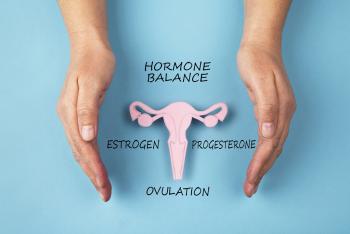Urinary tract infections (UTIs), bacterial infections of the bladder, are common health conditions...
Read More
Gynecologists and urogynecologists often treat different conditions, but they're both essential to the health of women and those assigned female at birth. Understanding how these specialty areas differ can help you ensure you’re seeing the right specialist for your health concerns.
“Gynecology is the branch of medicine that involves the care and treatment of the reproductive system,” said a medical director of urogynecology at Inspira Medical Group. “Gynecologists are trained to diagnose and treat a wide range of reproductive conditions and provide routine screenings, preventive care and physical exams.”
Gynecologists often handle the following:
Many gynecologists are OB/GYNs, specializing in obstetrics and gynecology. While gynecology involves treating and caring for all reproductive issues, obstetricians specialize in pre-conception, pregnancy, birth and postpartum care.
“Urogynecology is a specialty field that focuses on the health of the pelvic floor and urinary tract,” said a director. “Urogynecologists are experienced in diagnosing and treating noncancerous conditions affecting the bladder, urethra, gynecologic organs and pelvic floor muscles.”
Urogynecologists treat a wide range of pelvic disorders, which can be caused by childbirth or strenuous activity. The conditions they often treat include:
Patients with gynecologic concerns should start by talking to their gynecologist. “Your gynecologist can handle your routine care and the diagnosis and treatment of many reproductive issues,” said a director. “However, you may be referred to a urogynecologist for certain conditions.”
Talk to your gynecologist and primary care provider if you have any concerns about your reproductive health. Our skilled specialists are sensitive to patient needs and have years of experience diagnosing, treating and educating patients. Schedule an appointment with an Inspira gynecologist or urogynecologist.
Inspira Health is a high reliability organization (HRO), which means safety is the top priority for patients and staff. To make an appointment, call 1-800-INSPIRA.

Urinary tract infections (UTIs), bacterial infections of the bladder, are common health conditions...
Read More
Prioritizing cervical health is a lifelong commitment—from HPV vaccinations in adolescence to...
Read More
Midwives offer a compassionate, patient-centered approach. With an emphasis on consent and shared...
Read More
The material set forth in this site in no way seeks to diagnose or treat illness or to serve as a substitute for professional medical care. Please speak with your health care provider if you have a health concern or if you are considering adopting any exercise program or dietary guidelines. For permission to reprint any portion of this website or to be removed from a notification list, please contact us at (856) 537-6772